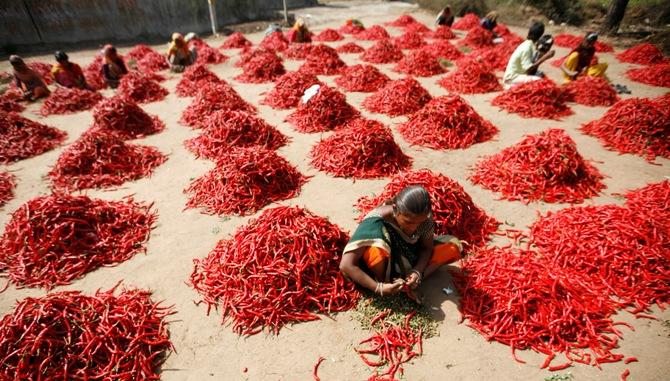
Congress Vice-President Rahul Gandhi has, in effect, told chief ministers of party-ruled states that if food inflation is to be controlled, as many items as possible must be got out of the purview of the Agricultural Produce Marketing Committee Act.
For the time being, these states are to delist fruit and vegetables from the APMC Act, so that growers of these are able to sell their produce directly to consumers.
The closest the government came to get states on - board to do this was in 2012.
A committee headed by a senior member of the Planning Commission had recommended that states do this in six months.
“Almost all states had agreed and the Planning Commission was given the task of monitoring the progress of this crucial reform, along with the Prime Minister’s Office,” a top official says.
. . .
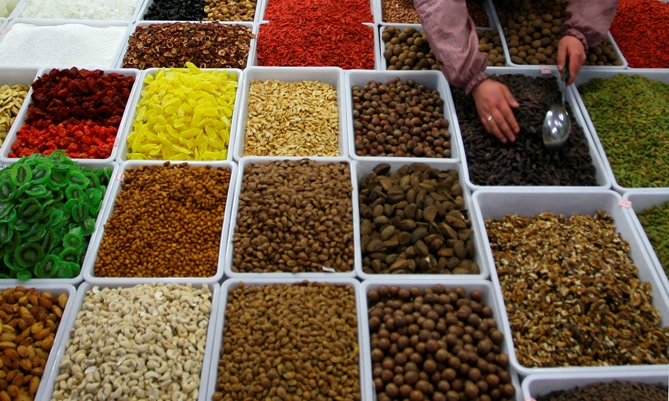
| REGULATION MISSING FROM REGULATED MARKETS |
|
The department of agriculture framed a model law which would have smoothened inter-state movement of agricultural commodities, including perishables such as fruit and vegetables, but a sudden change in focus halted the intention.
Half-hearted attempts were made to address the issue, as a result of which the objective was not realised.
Numerous other government and non-government committees have recommended exempting fruit and vegetables from the APMC Act but with little success.
The last such attempt was the recommendations of a committee of 12 state ministers, headed by Maharashtra minister of cooperation Harshvardhan Patil, which gave a report in January 2013.
It had recommended the abolition of mandi tax from fruit and vegetables, along with a host of other reforms in APMCs.
The committee was also constituted at the initiative of the PMO but things did not move.
. . .
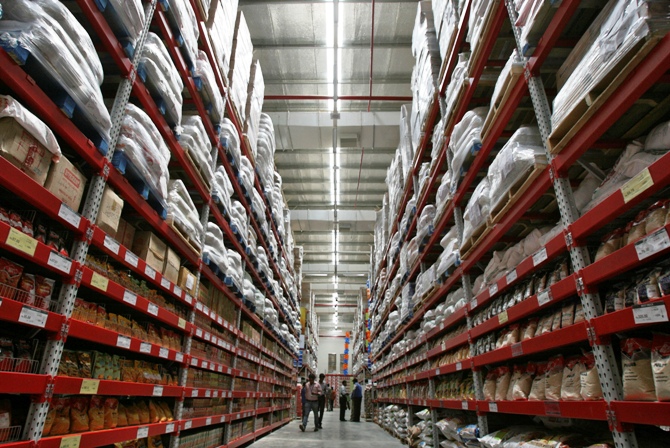
At present
The APMC law is nearly 50 years old.
Almost each state has one; it seeks to regulate the trade in agricultural commodities.
The idea was to protect the interest of farmers and ensure trading becomes orderly.
The Act resulted in creation of regulated markets, also called mandis; there are 7,246 of these.
The average area served by a regulated market is 450 sq km.
These mandis control almost the entire wholesale trade in agri goods.
How these operate have a huge bearing on the retail prices of fruit, vegetables and other produce.
A close look at the functioning of mandis suggests these neither protect the interests of farmers or orderly trade.
“The auction is rigged, shortages are created and there is no transparency in the way traders extract commission.
“How else will you explain that onion prices, Rs 100 a kilo prior to the recent Assembly elections, started falling just after the elections,” says a trader at Delhi’s Azadpur mandi.
. . .
A farmer in Uttar Pradesh’s Hapur learnt the functioning of a mandi the hard way.
He approached one mandi with nearly 50 kg of cucumber.
Upon arrival, he was greeted by a group of traders who did an instant auction and decided a price far below the market one.
Having travelled quite a distance, there was no way he could take his produce back.
“The actual farmer got a pittance for his produce but the trader sold the entire stuff at a huge premium to the retailer,” says the farmer.
“The process of auction at mandis is a sham.
“The same system has been followed since Independence.
“What is most bizarre is that the actual producer does not get to know the price at which he is selling till the auction is over and the auction winner reveals the final price,” says Brahm Yadav, former chairman of the Delhi Agricultural Marketing Board that controls Azadpur mandi, one of the largest in the country.
. . .

He adds hoarding and creating artificial shortages by not allowing an auction platform for commodities in demand for a few days, thereby creating price shocks, is a norm.
He asks why there is no electronic auction and no effective system of communicating wholesale rates to consumers on a daily basis.
Distortions at mandis lead to huge difference in the price a consumer pays and what the producer gets.
A 2011 Indira Gandhi Institute of Development Research paper by Gokul Patnaik quotes a research on fruit and vegetable supply in Delhi, Mumbai, Bangalore and Kolkata.
It found that ‘on an average, there are five-six intermediaries between the primary producer and the consumer.
The total mark-up in the chain added up to 60-75 per cent. The primary producers receive only 20-25 per cent of the retail price.”
. . .
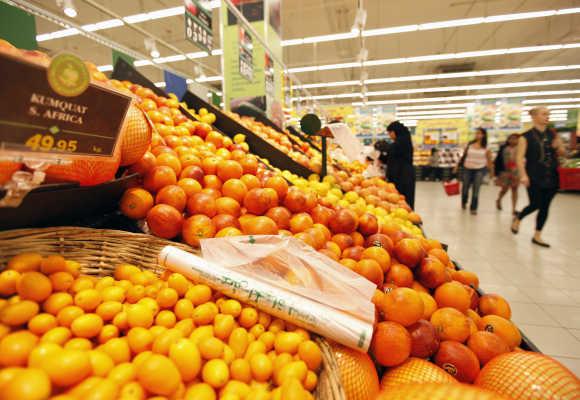
Way forward
Bharatiya Janata Party Kisan Morcha president Omprakash Dhankar says it is wrong to blame traders or the operations of mandis for rising food inflation.
“Mandis at least provide some platform to farmers to sell their produce.
“The system has some flaws but these can be rectified.
“You cannot do away with mandis unless you have a better system in place.”
For a better system, the central government had formulated a model APMC Act in 2003. It permitted private and corporate bodies to set up a marketing network and to demolish the well-entrenched mechanism of middlemen and arthiyas.
And, for allowing private mandis.
But state governments’ approach has been partial adoption of some of these provisions.
. . .
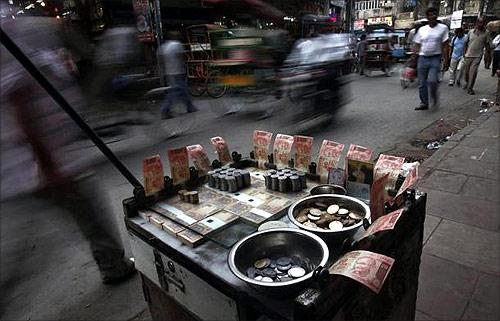
Less than 10 per cent of trade in agricultural commodities takes place in private mandis.
Some states have allowed contract farming, others have allowed direct purchase from farmers.
But comprehensive reform of APMC legislation is yet to take place in any state.
Why, despite these known deficiencies, are state governments reluctant to reform the system?
Says S K Bansal, former chairman of the Azadpur mandi: “It is all about politics.”
In most states, mandis are controlled by politicians.
It is one of the remnants of a quota-permit-raj, where obtaining a trading licence is akin to winning a lottery.
Politicians have kept the entry barrier high, hurting both consumers and farmers.